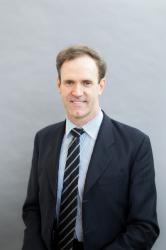It’s no secret that major rifts have opened up between advocates of free markets and social conservatives in recent years. As someone who (1) ascribes to what would be conventionally called socially conservative views (though I think they’re more accurately called the insights of natural law and right reason) and (2) regards a free market economy as the most prudent set of economic arrangements for individuals, communities, and nations, I find myself constantly exposed to these debates.
In some cases, the tensions reflect very different conceptions of human nature, freedom, the nature of community, and the proper ends and scope of state action. There is a profound and millennia-old difference, for example, between those who ascribe to the idea of liberty as a necessary condition for the higher freedom that comes from all-round human flourishing (the position of Aquinas and the classical natural law tradition), versus those who conceptualize liberty in essentially Epicurean – i.e., hedonistic – terms.
But it’s also the case that many on both sides of this discussion simply aren’t willing to acknowledge each other’s valid concerns.
Many social conservatives seem reluctant to acknowledge that the study of market economics from Adam Smith onwards has revealed some important truths about human affairs and the social order which it would be unwise for a prudent legislator to ignore. If you disregard, for instance, the fact that self-interest does play a role at some level in human decision-making, or the crucial role played by free prices in ensuring a smooth relationship between supply and demand, society will pay a very heavy economic price that will hurt the economically less-well off the most.
On the other side of the equation, I have noticed an uptick in the number of free marketers who express indifference, and often hostility, to the worries of social conservatives. Some free marketers are, for example, conspicuously quiet about the growing problem of woke capitalism. Others have relatively little to say about on-going threats to religious liberty.
In a recent Wall Street Journal opinion-piece entitled, “Free-Marketers Have Taken Social Conservatives for Granted,” Iain Murray, who heads the Center for Economic Freedom at the Competitive Enterprise Institute, argues that another part of the problem is that “For decades, capitalists have failed to present their arguments in the language of traditional conservatism. They took social conservatives’ support for the free market for granted.”
Murray adds: “free-marketers made little effort to show how capitalism complements tradition and enhances security. Fluent in the language of liberty and working hard to promote free enterprise in terms of fairness, capitalists thought they had covered all their bases.”
I don’t interpret Murray as advocating a return to what was called “fusionism.” I’ve always viewed fusionism as having much more to do with forging necessary political alliances on “the right” in the 1960s and 1970s against common enemies – especially the menace of the Soviet Union and the ideology of evil otherwise known as Communism – than the development of a coherent political philosophy.
Instead, Murray is suggesting that if free marketers want to shore up support for the free economy among self-described social conservatives (whose numbers, I suspect, dwarf those of self-described libertarians in America), they need not only to think about how they calibrate their arguments but also to say much more about the ways in which markets can contribute to realizing some of the goals considered valuable by social conservatives such as order and security
Would this be a challenging project? Yes. But it is certainly an undertaking that needs attention. Kudos to Iain Murray for underscoring its importance.
Image source: Flickr/Liz West

